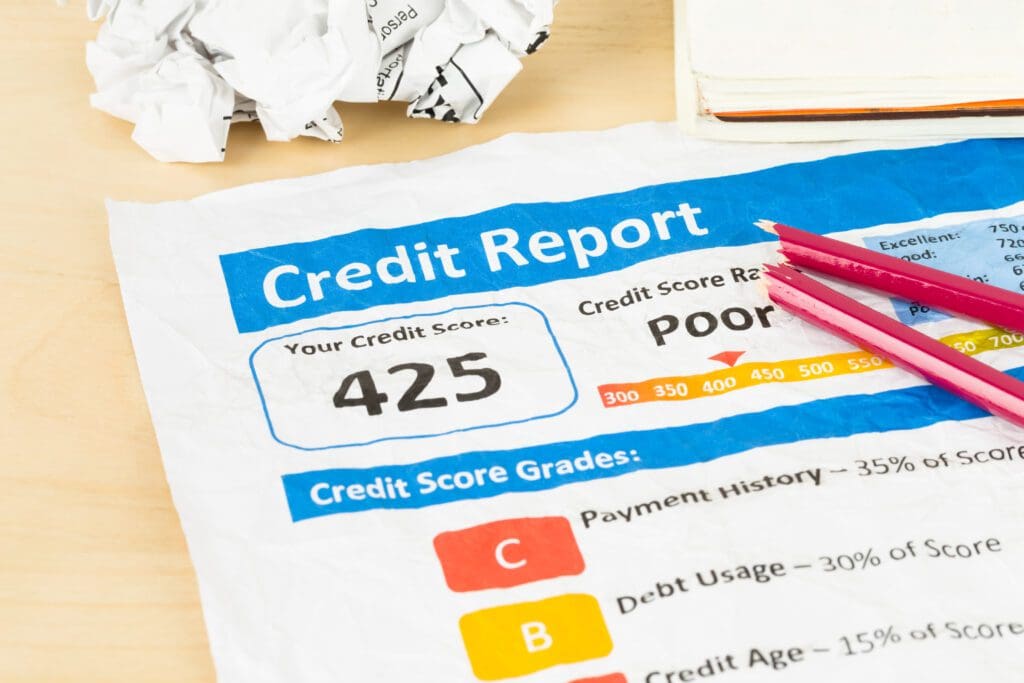
You do your best to be financially responsible. You use credit cards sparingly and make a payment every month. Your mortgage is current, and your car is almost paid off. But then you receive a notice that your interest rates are going up or your credit card was canceled because of your credit report. Credit report errors are common, and many consumers struggle to correct their credit history on their own.
If you have discovered inaccurate credit information in your credit reports, you are not alone. The Federal Trade Commission reported that 26% of American consumers have found substantial errors in their credit reports that could make them a bad credit risk. A Consumer Reports investigation determined that 34% of participants found at least one mistake in their credit bureau report. And 10% said just accessing their credit report was a challenge.
You might think credit bureau mistakes are simple to fix. However, as the executive director of the National Association of Consumer Advocates explains,
“In reality, it is really, really, really hard to fix your credit report… because the credit reporting system wasn’t built for the benefit of consumers. It was built for the companies that use it.”
Unfortunately, most consumers find the credit reporting system difficult to navigate.
Federal law protects your right to review and correct your credit reports. However, not all credit reporting agencies or creditors follow the law. When you find an error in your credit report, but you can’t correct it, turn to an experienced credit report lawyer at Schlanger Law Group for help.
The information contained in your credit report can cost you—or save you—thousands of dollars during your lifetime. Your credit score can affect:
With so much riding on your credit history, your credit report must be accurate, or you may suffer serious financial consequences.
The federal government enacted the Fair Credit Reporting Act (FCRA) to protect consumers’ credit report rights. This law regulates:
The FCRA is a complicated law. In general, it:
Credit reporting agencies (CRAs) are in the business of gathering consumer credit information, compiling that data into reports, and selling those reports to potential creditors. The three major credit reporting agencies are Equifax, Experian, and TransUnion. It’s important to understand that CRAs are not loyal to consumers. They cater to the people who pay for the credit report. As a result, the CRAs have no incentive to verify information until you dispute your credit report errors.
Your original creditors—a credit card company, bank, or lender—may report inaccurate information to the CRAs. Some errors are true clerical mistakes or oversights. The company may forget to report a recent payment or update the balance due on a loan. However, unethical creditors may fraudulently report information to the credit bureaus hoping the consumer will simply pay it to clear their credit history.
When CRAs receive credit information, they usually place it in your credit report without verifying the data. It’s up to you to find the error, dispute it, and request correction or deletion.
You can request and pay for a credit report at any time. However, you are entitled to at least one free report from the three main credit bureaus every 12 months using these links:
Or you can simply go to the general consumer site, AnnualCreditReport.com to request your free reports. Since each report may contain different information, it is important to review your reports from each credit reporting company.
Consumer Tip: If you don’t suspect any problems, you can stagger your requests and review a different report every four months instead of all three at the same time.
When you review your credit history, look for these possible credit report errors:
If you find an error in your credit report, you must file a dispute to correct the mistake. Start by sending a dispute letter to the Credit Reporting Agency that prepared the inaccurate report. Mail your dispute letter with any documents that support your claim that the disputed items are incorrect. Ask the CRA to correct or remove the error.
You can also dispute credit report errors directly with the creditor that furnished the information to the CRA. Send a separate dispute letter to the creditor but always dispute with the CRA first. Keep copies of everything you send and use certified mail to prove your letters were received.
Consumer Tip: Before you prepare your dispute form, be sure to read our detailed explanation of how to dispute credit report errors so you don’t miss any important steps that could jeopardize your dispute. You can also find sample letters online to start the process. However, we recommend sending a personalized letter instead of using online forms or dispute portals.
You may send these disputes on your own or you can reach out to a credit lawyer to be sure all necessary details and documents are included. This is especially important if you are an identity theft victim. If you file a dispute on your own and the investigation results are not favorable, your dispute is rejected, or you are completely ignored, reach out to the SLG team of consumer protection lawyers immediately.
When you need a lawyer who understands how to correct credit report errors, turn to Schlanger Law Group. We can:
Depending on your situation, you may receive a corrected credit report, compensation for your actual losses, emotional suffering, anxiety, or loss of reputation, and payment of your attorney’s fees and costs. Read some of our other client success stories to learn how we can help.
SLG’s consumer protection lawyers are dedicated, compassionate, consumer advocates. We take on the big CRAs and companies that don’t care about consumers or how inaccurate information can be devastating. We are proud to enforce the federal laws that were enacted to protect you. Learn more by calling (212) 500-6114 or simply click the button below to schedule a free case consultation today.
Schlanger Law Group LLP serves clients in New Jersey, New York, and throughout the United States with consumer protection, class action, credit reporting, and identity theft issues.
Schlanger Law Group In The Media




Reach out to Schlanger Law Group for a free consultation, and let’s discuss your case with no upfront fees.
The information on this website is for general information purposes only. Nothing on this site should be taken as legal advice for any individual case or situation.
This information is not intended to create, and receipt or viewing does not constitute, an attorney-client relationship.
ATTORNEY ADVERTISEMENT | Past Results Do Not Guarantee Similar Outcomes in the Future
This site is protected by reCAPTCHA and the Google Privacy Policy and Terms of Service apply.
WEBSITE BY: VISIONTRACTION